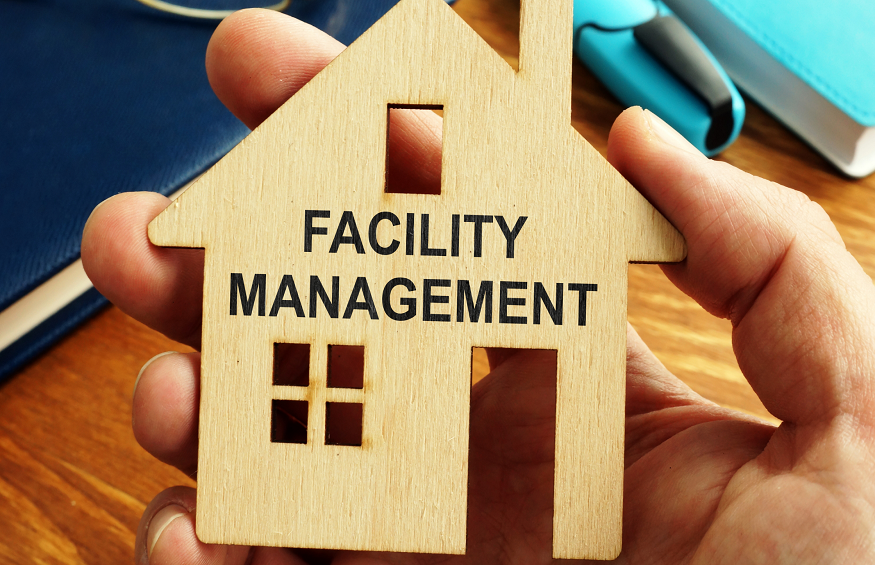Monitoring and maintaining physical assets and infrastructure is a key component of modern enterprises and organizations. It includes a variety of tasks, including as upkeep and repair, space optimisation, and sustainability programmes. Streamlining processes, increasing productivity, and assuring tenant well-being all depend on effective facility management.
We shall examine the many advantages that effective facility management company offers in this post.
1. Cost Optimization
One of the primary advantages of facility management is its ability to optimize costs. By proactively maintaining equipment and facilities, facility managers can reduce the likelihood of unexpected breakdowns and repairs, ultimately cutting down on emergency expenses. Additionally, routine maintenance extends the lifespan of assets, avoiding costly replacements in the short term.
Facility management also allows for the implementation of energy-efficient practices, leading to reduced utility bills. Through careful monitoring and energy conservation initiatives, businesses can significantly reduce their carbon footprint and operating costs simultaneously.
2. Enhanced Productivity
A well-maintained and optimized facility management top companies creates a conducive environment for occupants, directly impacting their productivity and well-being. Facility management ensures that the physical space is organized, clean, and safe, minimizing distractions and promoting focus among employees. Adequate lighting, ventilation, and temperature control play crucial roles in creating a comfortable workspace, which, in turn, boosts employee morale and engagement.
Furthermore, efficient facility management contributes to efficient space utilization. Unused or underutilized spaces can be reconfigured, fostering collaboration and teamwork. By aligning the workplace with the organization’s needs, facility managers enhance productivity and promote a positive work culture.
3. Risk Mitigation and Compliance
In today’s complex business landscape, compliance with regulatory standards and safety protocols is paramount. Facility management involves regular inspections, risk assessments, and adherence to relevant regulations, ensuring that the facility remains compliant with all safety and environmental guidelines.
By proactively addressing potential risks and hazards, facility managers help prevent accidents and ensure the safety of occupants and visitors. This not only safeguards the organization from legal liabilities but also protects its reputation and brand image.
4. Strategic Resource Allocation
Facility management aids in making informed decisions about resource allocation. With data-driven insights on space utilization, energy consumption, and equipment performance, organizations can optimize their resource allocation strategies. For instance, if certain areas of the facility are consistently underutilized, they can be repurposed or rented out to generate additional revenue.
Similarly, by analyzing energy consumption patterns, businesses can identify areas where energy efficiency can be improved, leading to cost savings and reduced environmental impact. Data-driven facility management allows organizations to make well-informed decisions that align with their overall strategic goals.
5. Improved Tenant and Customer Satisfaction
In commercial real estate, facility management plays a vital role in tenant satisfaction. Commercial tenants expect well-maintained and functional spaces that meet their needs. A proactive facility management approach ensures that any issues are promptly addressed, fostering positive tenant relationships and tenant retention.
For businesses that serve customers on-site, such as retail outlets or hospitality establishments, facility management directly impacts customer satisfaction. Clean and well-organized facilities, along with smooth operations, create a positive impression on customers, encouraging repeat business and positive word-of-mouth.
6. Sustainable Practices
As environmental consciousness continues to grow, businesses are under increasing pressure to adopt sustainable practices. Facility management plays a critical role in promoting sustainability within an organization. From energy-efficient lighting and HVAC systems to waste management and recycling initiatives, facility managers can implement eco-friendly practices that reduce the organization’s environmental impact.
Not only do sustainable practices benefit the planet, but they also align with the values of socially responsible consumers and investors, enhancing the organization’s reputation and marketability.
7. Regulatory Compliance and Legal Support
In today’s complex regulatory environment, facility management plays a crucial role in ensuring compliance with various laws and regulations. Facility managers are well-versed in building codes, safety standards, environmental regulations, and accessibility requirements. By keeping up-to-date with the latest legal developments, they help organizations avoid potential fines, penalties, and legal disputes.
Moreover, facility managers can also assist organizations during audits and inspections, ensuring that all necessary documentation and records are readily available, further safeguarding the organization’s interests.
8. Health and Safety Promotion
The health and well-being of occupants is a top priority for any facility manager. A safe and healthy work environment not only enhances employee satisfaction but also reduces absenteeism and boosts overall productivity.
Facility managers oversee safety protocols, implement ergonomic design principles, and conduct regular safety training for employees. They also ensure that the facility is equipped with essential safety features, such as fire extinguishers, emergency exits, and first-aid stations, promoting a culture of safety within the organization.
9. Reputation Management
A well-maintained and aesthetically pleasing facility contributes significantly to an organization’s reputation. A clean, organized, and visually appealing environment leaves a positive impression on clients, partners, and visitors, enhancing the organization’s credibility and professionalism.
On the other hand, poorly managed facilities with visible maintenance issues can have a detrimental effect on the organization’s image. Facility managers work diligently to maintain a high standard of cleanliness and functionality, ultimately contributing to a positive public perception.
10. Space Planning and Flexibility
Facility management involves effective space planning to optimize the use of available resources. By analyzing space utilization data, facility managers can identify areas with excess capacity or those in high demand. This information allows them to allocate space more efficiently, resulting in cost savings and better resource management.
In addition, facility managers also focus on designing flexible spaces that can adapt to changing needs and trends. Flexible workspaces can accommodate evolving work dynamics, such as remote work arrangements or team expansions, ensuring that the facility remains adaptable and future-proof.
11. Improved Asset Resale Value
For businesses that own their facilities, proper facility management can lead to an increase in asset resale value. Regular maintenance, upgrades, and adherence to sustainability practices enhance the overall condition of the property, making it more appealing to potential buyers or investors.
A well-maintained facility with updated infrastructure and energy-efficient systems can command a higher resale value, providing a positive return on investment for the organization.
12. Employee Satisfaction and Retention
Facility management indirectly impacts employee satisfaction and retention. Employees spend a significant portion of their time in the workplace, and the quality of the physical environment affects their overall job satisfaction.
By providing a comfortable and conducive workspace, facility managers contribute to employee well-being, leading to higher job satisfaction and reduced turnover rates. A pleasant work environment fosters a positive organizational culture, where employees feel valued and motivated to excel.
13. Focus on Core Competencies
Outsourcing facility management allows organizations to focus on their core competencies. By delegating facility-related tasks to specialized providers, organizations can concentrate on their primary business objectives, leading to increased efficiency and competitiveness.
Outsourced facility management also provides access to specialized expertise, industry best practices, and the latest technologies, ensuring that the facility receives optimal care and attention.
Conclusion
Facility management is an indispensable part of modern business operations that brings a plethora of benefits to organizations. From cost optimization and enhanced productivity to risk mitigation and sustainability, proficient facility management contributes to the overall success and longevity of businesses and institutions.
By recognizing the value of facility management and investing in its implementation, organizations can create a well-maintained, efficient, and sustainable environment that fosters success in the long run.




